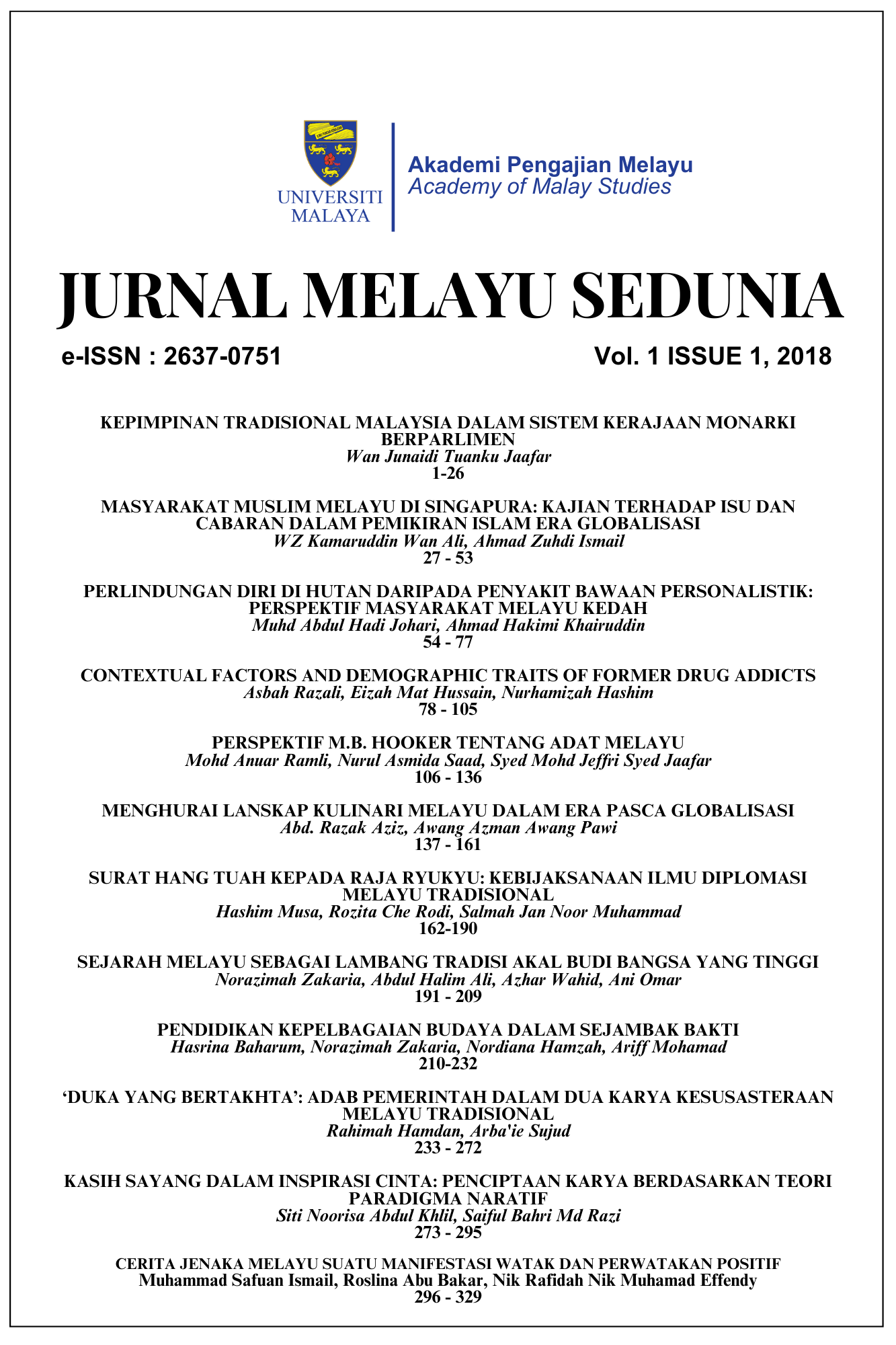CONTEXTUAL FACTORS AND DEMOGRAPHIC TRAITS OF FORMER DRUG ADDICTS
Keywords:
Drug Addicts, Relapse, Contextual Factors, Demographic FactorsAbstract
The increase in the number of relapse drug addicts is alarming. Thisis because former drug addicts face various pressures and challenges after the end of their treatments and recovery period. The contextual factor involving family’s past with family members’ involvement in drug problems, treatment and recovery end period are also said to be one of the factors contributing to the inclination to relapse. This situation proves the history of family members’ involvement in drug problems could be a risk factor that causes the increase in the relapse rate every year. Meanwhile, the treatment end period factor found that around 35% - 58% of drug addicts relapse into drug use two weeks after their treatment ended. In addition, previous studies mostly identified demographic traits that could be linked to the inclination to relapse such as the age and socioeconomic status factors of addicts. Therefore, through this study, contextual factors and demographic traits that could influence the inclination to relapse could be further elaborated upon.


